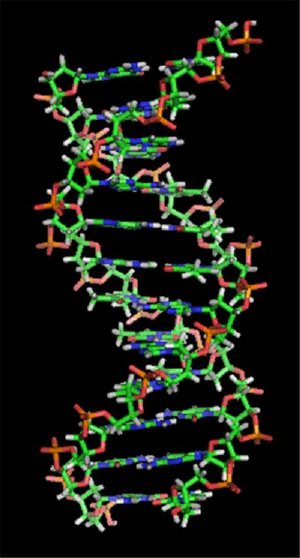Aug 26 2009
Researchers in Singapore are reporting development of a new electronic sensor that shows promise as a faster, less expensive, and more practical alternative than tests now used to detect DNA. Such tests are done for criminal investigation, disease diagnosis, and other purposes. The new lab-on-a-chip test could lead to wider, more convenient use of DNA testing, the researchers say. Their study is scheduled for the Sept. 2 issue of the Journal of the American Chemical Society, a weekly publication.
 Scientists have developed a new electronic sensor that shows promise as a better way to detect DNA for diagnosing disease and investigating crimes. Credit: Wikimedia Commons
Scientists have developed a new electronic sensor that shows promise as a better way to detect DNA for diagnosing disease and investigating crimes. Credit: Wikimedia Commons
In the new study, Zhiqiang Gao and colleagues note that current methods for detecting DNA involve the used of the polymerase chain reaction (PCR). This technique "amplifies" or makes multiple copies of trace amounts of DNA, much as a photocopier produces multiple copies of documents, in order to detect the genetic material more easily. The amplification step is one reason why tests involving PCR can be too expensive, cumbersome, and imprecise for wider use.
The researchers describe development of a so-called "nanogap sensor" that appears to overcome those obstacles. The process uses a pair of micro-sized metal electrodes separated by a nanogap, 1/50,000 the width of a human hair, in combination with special chemical probes, to capture tiny segments of DNA. The newly formed "circuit" then translates the presence of DNA into an electrical signal so that it can be measured by a computer. In laboratory tests, the sensor showed "excellent" sensitivity at detecting trace amounts of human DNA and may eliminate the need for DNA amplification altogether, the researchers say.
ARTICLE #4 FOR IMMEDIATE RELEASE "Mass-Produced Nanogap Sensor Arrays for Ultrasensitive Detection of DNA"
DOWNLOAD FULL TEXT ARTICLE : http://pubs.acs.org/stoken/presspac/presspac/full/10.1021/ja901704t